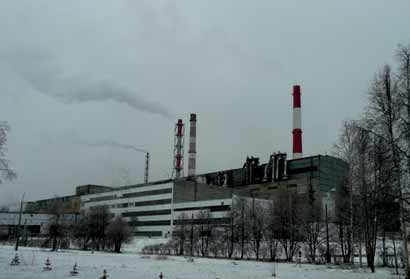
The Baikal Pulp and Paper Mill is to be shut down in a victory for environmental campaigners.
The move to shut the Baikal Pulp and Paper Mill has far more hope of success than previous attempts, it is believed.
“We have made a decision to close down the Baikal Pulp and Paper Mill gradually and transfer output to other enterprises,” said deputy prime minister Arkady Dvorkovich.
“This is a complex process, but it can be completed in several years.”
Other accounts suggested the mill — the target of ‘green’ campaigners for more than two decades — would be axed ‘within a year’.
The mill was blamed for serious pollution in Baikal, the world’s oldest and deepest lake, a UNESCO World Heritage Site holding 20% of the planet’s unfrozen fresh surface water.
The decision will be seen as a blow to the 2,000-strong workforce living around Baikalsk.
Now state-run national development bank Vnesheconombank (VEB) has taken over a majority of the plant’s debt from Alfa Bank. VEB will now seek to relocate many of the workers.
It could take four to six years to liquidate the mill’s accumulated waste.
It is not the first time the Kremlin has announced a decision to halt production. In Soviet times, the Gorbachev government announced it would close in 1993, a decision that was overtaken by the collapse of the USSR.
One day it is hoped to see the site of the plant redeveloped as a tourist complex.
The move has far more hope of success than previous attempts, it is believed.
In April 1987, one report stated: “The Politbureau of the
CPSU Central Committee set the targets for re-orienting the Baikal pulp-and-paper mill, for effecting large-scale measures at other enterprises in this area to prevent the contamination of Lake Baikal and the airspace in this zone.
“It is envisaged to extend the network of tourist bases there and simultaneously to create such conditions for developing tourism and rest and recreation facilities for the population, which guarantee the preservation of landscapes, plant and animal life... the Politbureau made these decisions with a view to protecting and rationally utilising the natural resources of Lake Bailkal.”
A 1991 deadline to clean-up the mill was never met, with too many other enterprises depending on its pulp.
The mill became the target of a more assertive ecological movement after the collapse of the Soviet Union. In 1997, Greenpeace blamed ‘poisonous chemical waste’ from the mill for the death of unique Baikal seals. “Sewage from a local pulp mill is the only possible source for that,” said campaigner Ivan Blokov.